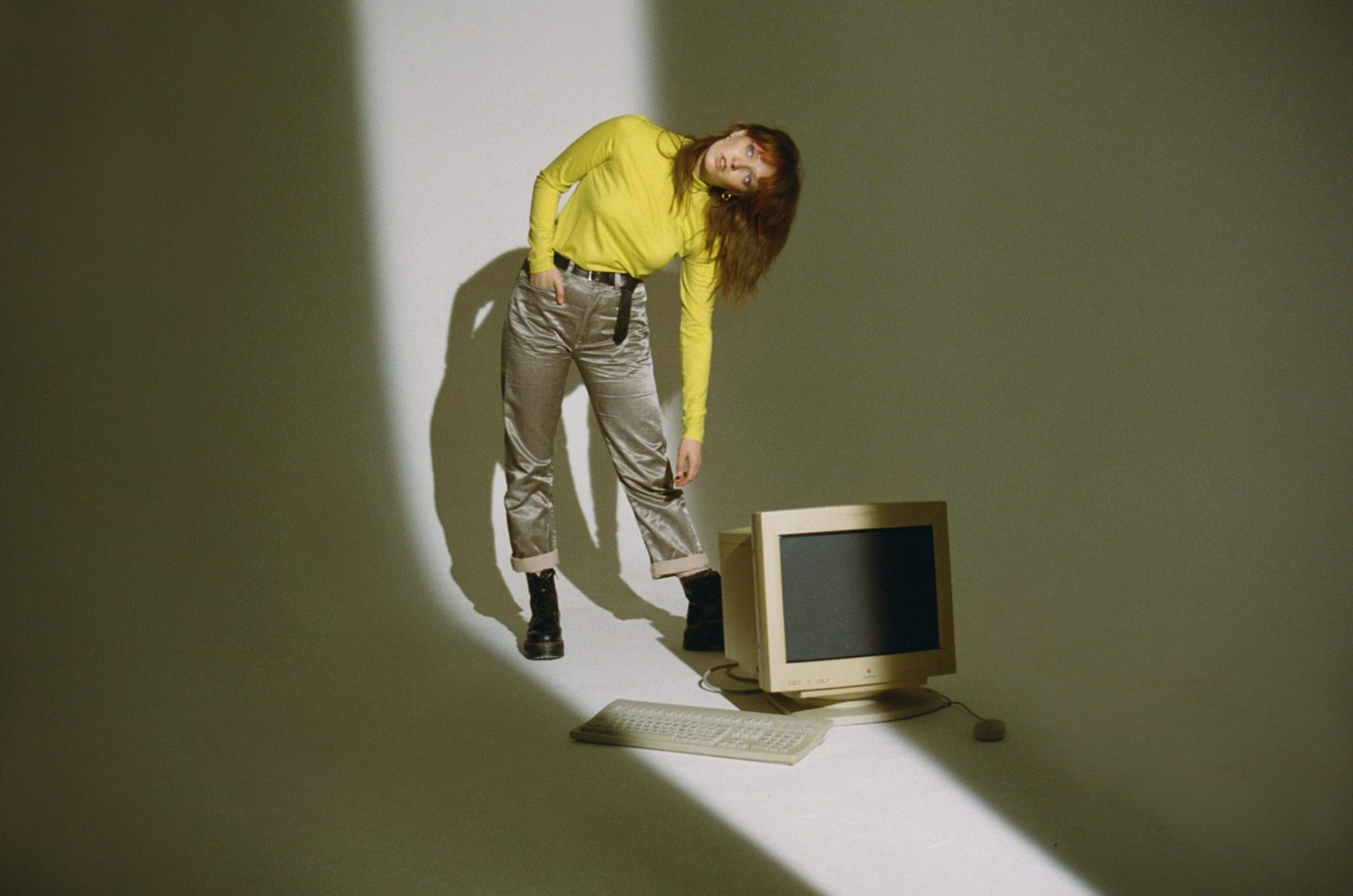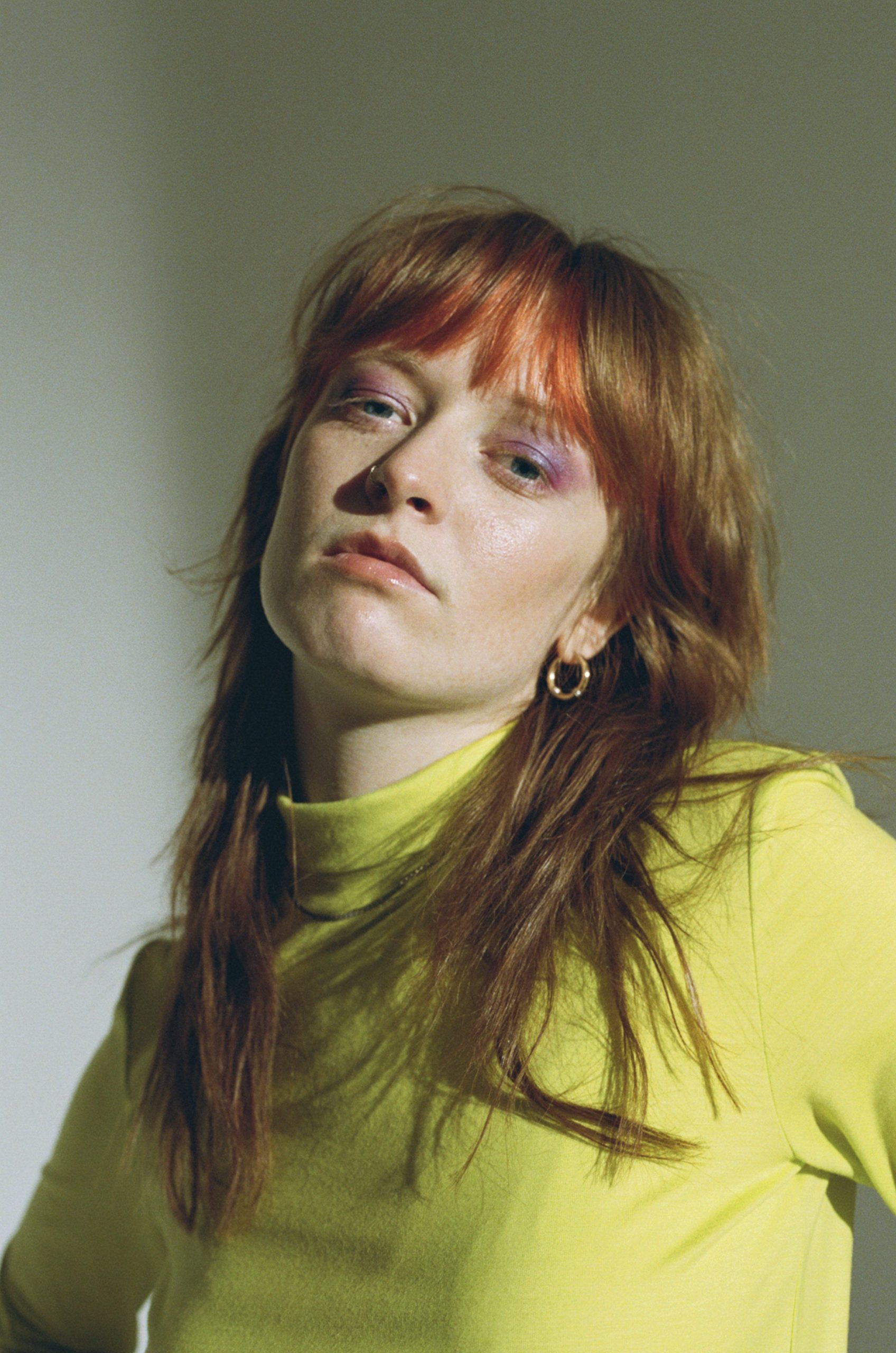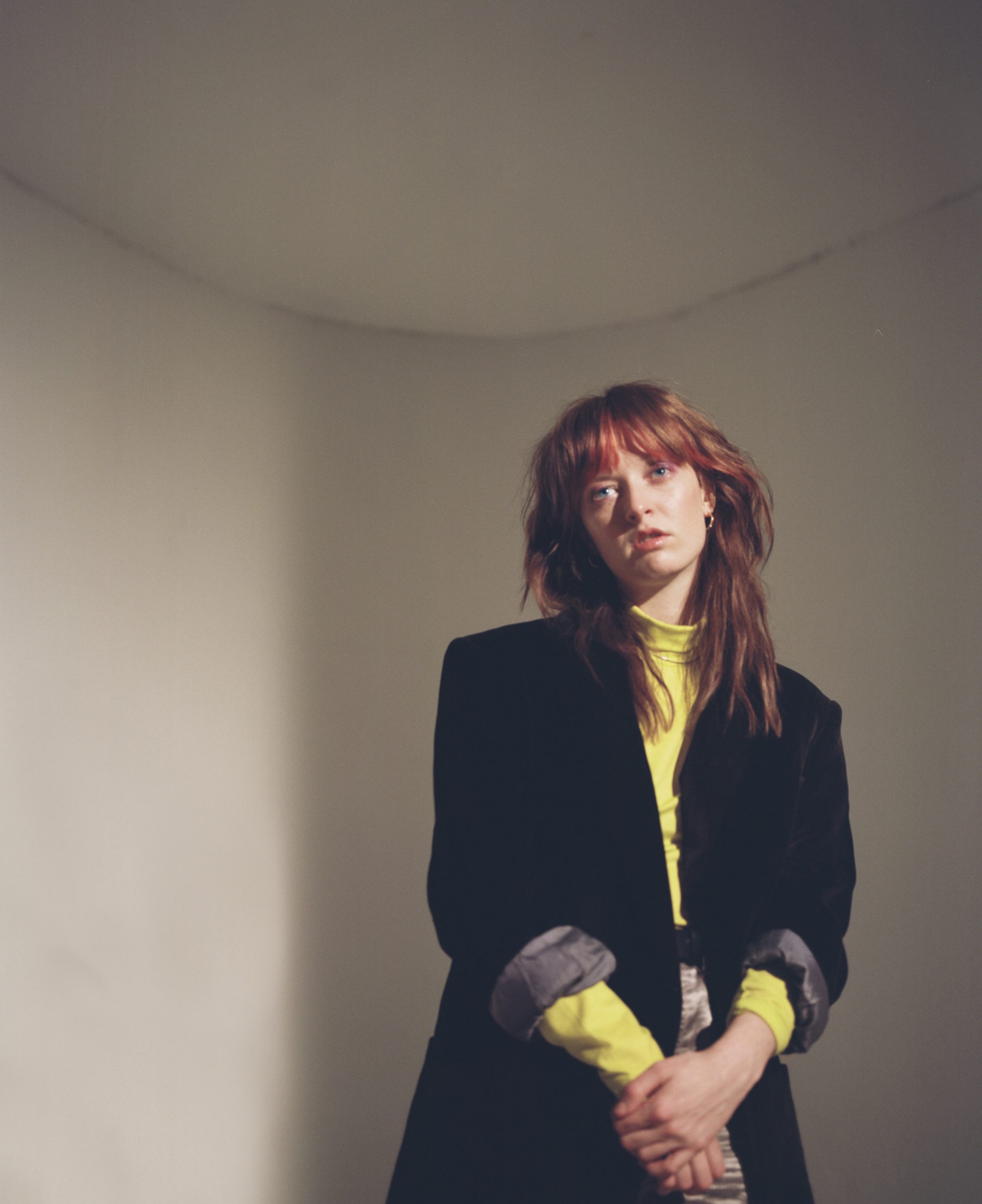
It’s 2020, the pandemic has just started and the trailer for the TV adaptation of Sally Rooney’s Normal People is a hot topic on the internet. I’m sitting in my room anxiously anticipating the series, when the song soundtracking the trailer catches my attention. It’s Orla Gartland’s fittingly heartbreaking single “Heavy.”
Fast forward a year and a lot has changed, while so much has stayed the same. The pandemic is still raging on, Sally Rooney has published her third book, Beautiful World, Where Are You?, and Orla Gartland has just released her debut album Woman On The Internet.
Much of Gartland’s album was written over the past year and like many of us the 26-year-old was forced indoors and had all the time in the world to surf the internet and reflect on her life. Throughout the album you can hear the awareness she’s gained, and the discomfort she’s pushed through, in order to become her most authentic self. Whether it’s “You’re Not Special, Babe,” exemplifying the realization that most of your problems aren’t unique, but that you also aren’t alone, the ode to the internet, “More Like You,” which narrates the jealousy you feel after internet-stalking your best friend’s new best friend, or the opening track “Things That I’ve Learned” which sets the stage for the growth that follows, Gartland taps into her own life while making the feeling behind every song universal.
We caught up with Gartland over Zoom to talk about the internet’s influence on her career, her choice to release her album independently, and the chaos of your twenties.
This interview has been edited and condensed for length and clarity.
I felt like a large theme on the album is obviously the internet and social media. I know that you had started your career off by posting a lot of Youtube videos, so I wanted to ask about the evolution of your relationship with the internet and how you feel about it now?
I mean it’s a turbulent, ever changing thing. I wish I could be like that Lorde song where I just throw my cellular device into the ocean. If I didn’t have music, and if I hadn’t had an album to promote this last year, I came pretty close to that at a few points. I have such an interesting relationship with the internet because it’s helped me massively and it also plagues me. I don’t think it’s helpful to be so aware of what everyone else is doing. And again it’s conflicting for me because it’s with these tools that I’ve built this audience, at least initially, before I started gigging and doing the more traditional parts of this job. But yeah, it’s such a conflicting thing and trying to be authentic is such a mission in itself and such a responsibility when you have people that are looking at what you do. It’s an ever changing relationship. I can’t say that I have it figured out. I’d like to think I’m at a point now where it’s a little bit healthier than it maybe was a couple years ago. I think I can ease up on the comparison, which I used to be pretty bad at. There’s things like that over time that you can help, but I think it’s tricky.
Your cover videos from the early 2010s are still available on Youtube. I feel like a lot of times when artists get to a certain point in their career they take those down. I’d love to hear about the reason that you decided to keep them up.
I mean some of my worst ones are down. There were ones that I did that no one needed to see. I did a cover of the Spider-Man theme song when I was like fifteen, so like not all of them are there. But most of them are and I used to think that you had to cover your tracks and give everyone the impression that you’ve always been really talented and I just think that’s not true. When I find an artist out in the wild, on the radio, on a playlist, whatever, and I really do a deep dive, I want to see where they came from and I don’t think any less of them if they couldn’t sing in tune six years ago. Like who cares? If anything it makes me more attached to them because I can see the growth. If someone stumbled across one of my old covers, the idea of it does make me cringe, but ultimately they would see the date on it and they would be like, “Oh that was 2013. She’s gotten better since then, thank god.” That’s totally fine with me.
I think that’s great. I think more artists should do that so people are able to see a level of progression.
Oh my god yeah and it’s encouraging for people who are starting out because it’s intimidating to think that everyone’s this ready made pop star when they release music whereas actually there’s so many years of everyone being so shit before they’re good and it’s important to see that.

I know that you released this independently and that a lot of your team and your band are some of your friends like dodie and Greta Isaac. How has having that community influenced your creative development as an artist?
Yeah, I mean it influenced it massively. To a degree I’m self sufficient, like I’m involved in so many parts of my project. I can do a lot of the roles myself, but that doesn’t mean that I should and I think that these things even on a small scale always take a village. It’s really only in the last two years that I’ve really felt that village around me and felt that sense of community that I think is so vital to my sanity let alone working. I think as a solo artist it can be such an isolating job. I’m not part of a band. I don’t have tons of people around me that are sharing this experience with me. So naturally when I became friends with dodie, she lives around the corner from me, and Lauren Aquilina, who’s my housemate, we built this weird little community, this little pocket of friends. Ultimately we’re all working on our own thing, but these moments that we get to cross over are just the best things ever. They make the experience so much less isolating and it’s just nice when you trust people enough to open the floor to them. Like dodie didn’t specifically work on this album, but there’s been other songs in the past where she’s written string parts for me because that’s something she can do that I can’t and then equally she’s come to me when she wants some guitar on something. So that sort of skill sharing community is just so brilliant to me and so important to this record.
The album feels very self aware. If you’re comfortable I’d love to hear about where you were emotionally and mentally when you were writing some of the songs like “You’re Not Special, Babe” or “Codependency.”
I mean a lot of it was written last year which wasn’t a fun and wonderful time for everyone. I had to sit with feelings that I’d been running from for a long time. I think a lot of people had that experience and I think that was exposing and uncomfortable at times, but also really necessary and good. When I was writing these songs last year my lifestyle was distilled to the simplest things. I have a studio down the road that I rent and everyday was like my flat to the park to the studio, to the flat to the park to the studio to the shop; it was so simple. You just had to trim the fat of all the chaos. So I think that makes you sit with thoughts or at least brings them to the surface for better or worse. I think a lot of the songs came from that.
“Codependency” was quite a fun one. A big theme on the album that I like as a writer is taking a theme that inherently could, and maybe should, be quite heavy and quite serious and kind of twisting it on its head a little bit. Because you could definitely write a pretty intense and dark ballad about codependency. It’s a pretty dark thing, but to me what’s infinitely more interesting is having a song that works on two levels: that’s fun and upbeat, but then also you listen to it for like the third time and you’re like, “Ooooo that’s kinda fucked up.” I wrote that one with two friends: Greta, who art directed, and Martin, who I share my studio with. Again, that sense of a community that we spoke about is very much in the writing as well. So that one was really fun. Then “You’re Not Special” was equally fun, maybe a little bit more serious theme wise. It was the first written for the album, so I think it set the tone of this kind of coming of age, self-awareness with a hint of tough love thrown in. I mean essentially if you were to retitle it, it would be called “You’re Not Alone,” but I thought that sounded pretty cheesy (laughter). “You’re Not Special, Babe” was basically my way of rewording it, but the message is the same in that the ups and downs that you’re going through are not unique to you. Everyone’s going through it, so don’t get too bogged down. Don’t get too caught up in it.
Headspace wise it fluctuated. It was hard last year to muster up inspiration when no life was going on, but equally I’m so grateful to this album regardless of what it’s done or what it will do. It gave me such a focus that I think I would’ve gone completely crazy without. I think whether people were taking up a new hobby or it was a work thing, it was important to have anything to motivate you through the next bat shit crazy day to the next. Even if this album had never been released, it would’ve done something for me last year, especially just to serve as a focus.
I feel like a lot of the album deals with problems and anxieties that you deal with in your twenties. How does it conceptualize the chaos of your twenties compared to that of your teens?
They are just different things aren’t they? When you’re a teenager, I think you grow up so much year to year. Like you’re a completely different person when you’re fifteen to when you’re sixteen, or at least I think you are. So those big leaps of maturity feel very fast and I think you get to your twenties and it sort of slows down a little bit. For better or worse most people become more self aware of not just how they’re doing, but their place in a group and their place in the world. For me it’s just such an interesting time to think and write about because it’s not about who I am, it’s more like I kind of know who I am but maybe I don’t like it. Maybe I’m not actually that comfortable with it, and maybe I wanna fight that and try on these different versions of myself instead. Playing with that idea to me is your twenties. I’m twenty six now and that is such a weird age because I know people who are married with two kids, and then I have people like me who are living in a tiny bedroom in London. You’re definitely at a crossroads where everyone is starting to branch out and choosing vastly different types of life paths and you’re just like ahhhhhhhh. So yeah, it’s a weird time in a good way. It’s also interesting, with every little bit older I get, I definitely care a little bit less about how I come across and what people think of me. I think in my early twenties I was really plagued with that, so it’s not all bad.
You chose to release the album independently. I’d love to hear more about that and also if you have any advice for artists that are releasing work independently.
I think it’s absolutely the right thing for me and was for this album. It’s also not for the faint of heart. I have a lot of artist friends who reach out to me and they’re like, “Oh my god I want to release independently,” and I’m like do it, but don’t expect sleep cause you’re taking a bunch of different roles that would usually be done by a bigger team and distilling them into you, you and your manager, or you and your manager and one other person. It’s a lot of work and it’s scary sometimes putting down money for a music video that’s just coming from your own account and you’re taking the risk. It’s pretty scary stuff sometimes, but ultimately the pay off is getting to creatively do what you want within the confines of what you can. I think ultimately not having someone stand there saying you can’t do this music video, you can’t release this song… I would just struggle so much with that. The DIY spirit is just in me. It comes very naturally. I think especially after the Taylor Swift story, people and artists are starting to understand more than ever what it means to own your own masters in a way that I don’t think anyone really cared about a while ago which I think is a great thing. It’s power really. I think it’s definitely an integral part of this record. It would be a different thing otherwise. It wouldn’t be a bad thing, but it would’ve been different.

CONNECT WITH ORLA GARTLAND
INSTAGRAM / TWITTER / SPOTIFY / WEBSITE
story / Sloan Pecchia
photos / Karina Barberis
